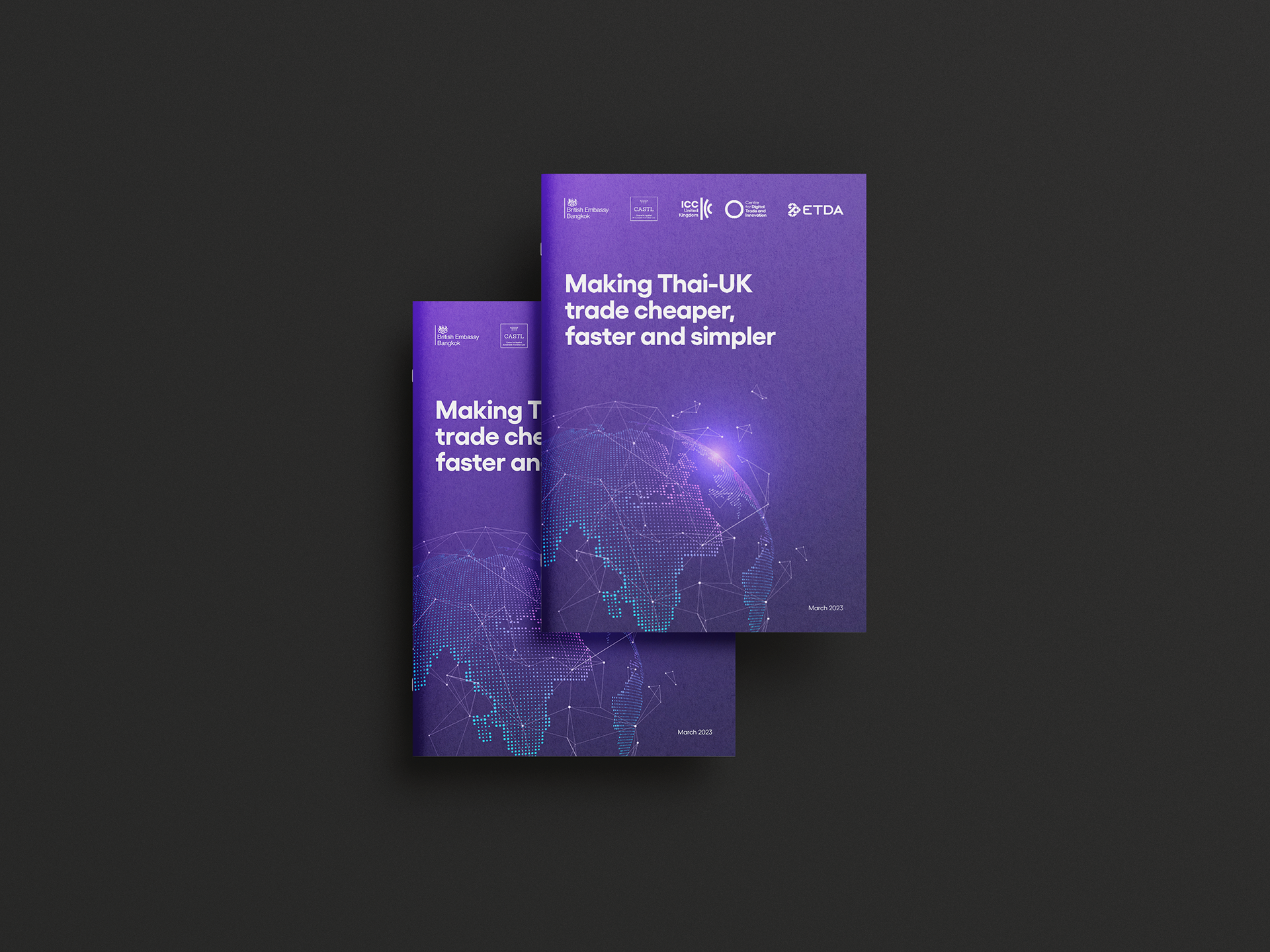New report highlights enormous progress of Thailand and UK digital trade partnership to deliver a cheaper, faster and simpler trade framework for SMEs
The ICC United Kingdom’s Centre for Digital Trade and Innovation (C4DTI), the Electronic Transaction Development Agency (ETDA), the Centre for Applied Sustainable Transition Law (CASTL) and the British Embassy to Bangkok have released a joint report demonstrating the progress that has been made by the FCDO-funded project to support Thailand’s efforts to remove legal barriers and digitalise trade.
By eliminating these obstacles, the project is helping to connect the UK, which is the world’s 3rd largest digital economy, with Thailand, the 2nd largest ASEAN digital economy. This enables both Thai and UK governments to open a paperless trade corridor to make imports and exports cheaper, faster and simpler for companies in both countries.
The success of this project has been built upon C4DTI’s technical assistance to Thailand to support the removal of legal barriers and alignment of national law with the UN Model Law on Electronic Transferable Records (MLETR). This enables commercial trade documents to be handled in digital form and the whole trading system to go paperless, helping SMEs to trade at a lower cost, removing unnecessary complexity caused by inefficient paper-based processes and speeding up the flow of trade transactions.
Projects such as this help to address the burdensome, paper-heavy processes that act as a barrier to the flow of transactional information and ultimately, a drag on economic growth. ICC and Commonwealth studies estimate that legal reform will deliver $9 trillion in trade growth across the G7 and $1.2 trillion across the Commonwealth in addition to an 80% cut in trade transaction costs, a 75% reduction in processing time and a 50% cut in the trade finance gap ($1.7 trillion worldwide).
Presently up to 27 paper documents can be used in a typical transaction, taking up to three months to process all of which should be completed in hours if digitalised. In total, 4 billion paper documents float through the trade system at any given time.
